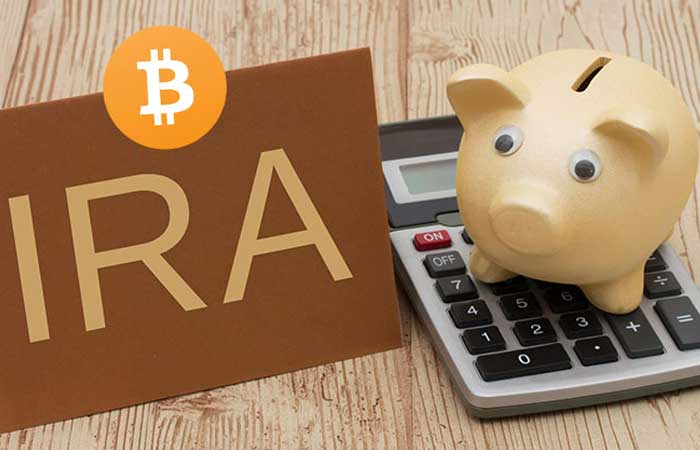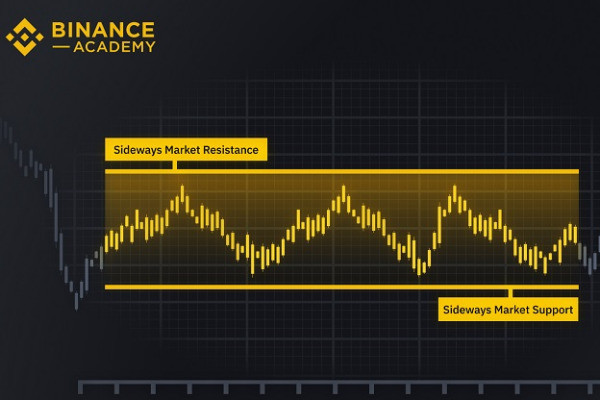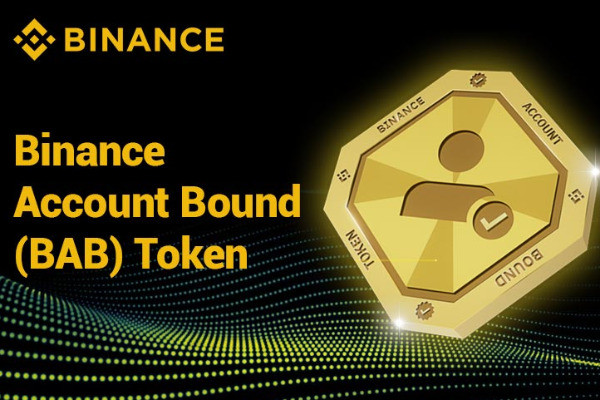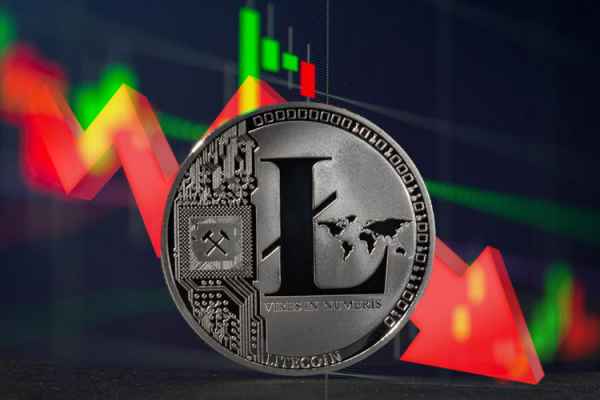Investing in Bitcoin IRA may give you tax benefits and portfolio diversification, but is it enough to make it a good plan for retirement? Find out the answers in this article.

Many see digital currency as the currency of the future. Over the years, cryptocurrencies are getting more and more common in our everyday lives, breaking barriers and expanding their functions. The underlying blockchain technology has also transformed online transactions and digital security. As a result, there's a huge expectation towards the future of Bitcoin and other cryptocurrencies, making it a potentially lucrative long-term investment.
Given the rising popularity of cryptocurrency, many industries are now offering Bitcoin IRA as a form of investment for retirement. Traditionally, people would invest in alternative assets like physical gold or real estate for their retirement plan, but now it's possible to add Bitcoin IRA. Investing in Bitcoin for retirement can offer you higher gains and diversify your retirement portfolio. However, Bitcoin prices are highly volatile, so many people are still skeptical about the idea. So, is Bitcoin IRA a good investment?
Contents
Defining Bitcoin IRA
An Individual Retirement Account (IRA) is a saving account with tax benefits that can be used to save and invest in the long term. Any individual with earned income can open an IRA retirement saving account to save long-term and enjoy the tax benefits. An IRA can be obtained through a bank, investment company, online broker, or personal broker.
When it comes to Bitcoin IRA, the first thing to understand is that there is no Internal Revenue Service (IRS) account dedicated specifically to cryptocurrencies. So, if an investor uses the term "Bitcoin IRA", it actually refers to an IRA that includes Bitcoin or other digital currencies within its portfolio.
Since 2014, the IRS categorized Bitcoin and other cryptocurrencies in retirement accounts as property, which means, the coins should be taxed in the same manner as stocks and bonds. Most traditional financial companies won't accept cryptocurrencies in an IRA because they focus mainly on traditional investments. Therefore, those who want to include Bitcoin in their retirement savings account should ask for the help of a custodian. The twist is that it's often difficult to find a custodian that accepts Bitcoin in an IRA, hence the birth of self-directed IRAs.
Self-directed IRA accounts would allow its holders to invest in alternative asset classes such as physical gold, real estate, and cryptocurrencies. Recently, investing in Bitcoin IRA has become quite popular, so there is a growing number of custodians or companies that aim to help investors with their IRA accounts. Some of the examples are BitIRA, Equity Trust, and Bitcoin IRA, one of the pioneers in the industry. According to the Retirement Industry Trust Association (RITA), approximately 2-5% of all IRA accounts are invested in alternative assets.
How Does Bitcoin IRA Work?
Generally, a Bitcoin IRA works pretty much like a normal IRA. It is simply a retirement account in which you can invest and store assets, except in Bitcoin IRA you're investing in crypto coins instead of mutual fund shares. You'll basically get the same condition and rules as if you were investing in any typical asset classes, including the tax benefits.
You can whether you want to use traditional or Roth self-directed IRAs and enjoy the tax benefits that each account offers. You will also face the same annual contribution limits, which are either $6,000 or $7,000 if you are 50 or older in 2021. Further, if you are self-employed or a small business owner, you can choose between SEP IRAs, Simple IRAs, or Solo 401k IRAs. In addition, you can roll over the money from a normal IRA to a self-directed IRA.
There are some key differences between normal IRAs and Bitcoin IRAs. To begin with, you would need to store your asset in a digital wallet. You will also have to use a crypto exchange instead of just buying and selling assets in the stock market via your custodian. That being said, Bitcoin IRAs are slightly more complicated and require more effort than normal IRAs.
There are several vital terms that you must know related to Bitcoin IRAs, such as:
- A custodian – the holder of your IRA, so they are responsible for the safety of your funds and ensuring compliance with the regulations set by both the IRS and the government.
- An exchange – the one that manages your crypto trades. Crypto exchange is the place where you can buy and sell your crypto coins.
- Secure storage – crucial to store and protect your coins. Most providers offer proprietary storage to keep your assets secure from theft and other criminal activities.
What Are the Advantages of Bitcoin IRA?
Here are some benefits provided by Bitcoin IRA:
Portfolio Diversification
One of the greatest advantages of investing in crypto IRAs is that it may diversify your retirement savings plan. By diversifying your portfolio, you can protect your accounts from major economic downturns and minimize the overall risk associated with the portfolio. If you combine it with more traditional portfolios, Bitcoin IRAs will be able to help you secure your goals and increase your returns.
Potential for High Returns
Bitcoin is indeed very volatile, but volatility means there's a probability of getting high returns. For instance, Bitcoin was only $5,200 in March 2020 but ended the year close to $30,000. Considering that Bitcoin is easily the largest digital currency on the market right now, many investors believe that cryptocurrency is worth the risk, especially if you are only investing a small part of your overall portfolio value.
Tax Benefits
While Bitcoin offers a huge promise of high returns, many Bitcoin holders are also worried about high taxes. Since cryptocurrencies are identified as property by the IRS, your earnings are subject to either short-term or long-term capital gains taxes. When you are charged each time you sell crypto for gain, it can be a burdensome task to calculate the whole thing. Given the fact that crypto prices are highly volatile, the amount of taxes charged can be unpredictable. In a nutshell, tax is a common issue in crypto trading, but investing your crypto into a traditional or Roth IRA can actually save you from such a burden.
Investing in a crypto IRA can save you from taxes because you aren't taxed with anything as long as the assets are stored in your account. In this case, while both traditional and Roth Crypto IRAs have tax benefits, the timing of receiving them is different. A traditional crypto IRA offers instant tax benefits because the crypto contributions are tax-deductible so you can paying the taxes until you receive the funds once you retire. On the other hand, Roth crypto IRAs are not tax-deductible but they can offer greater benefits as you can avoid paying the capital gains tax every time the cryptocurrency increases in value.
If you are searching for more ways to reduce your crypto taxes, you may want to consider a strategy called crypto tax-loss harvesting, which involves selling your assets at a loss to offset your gains. In this case, you can use crypto tax software like TaxBit to make the process easier. The software will help you identify tax-loss harvesting opportunities, track your crypto portfolio, and automatically generate your tax forms.
What are the Downsides of Bitcoin IRA?
- High Volatility
Cryptocurrency's high volatility can be a double-edged sword. While it can offer great returns, the risk is equally great. Take Bitcoin for example. The price of Bitcoin in December 2017 was close to $20,000 but it went as low as $3,400 in only a year. Such volatility and unpredictability can be dangerous for long-term investments like retirement plans. - Additional Fees
Unlike normal IRAs, which generally allow you to invest for free, self-directed IRAs typically come with more fees, such as set-up fees, trading fees, and account management fees. This can be crucial for long-term investments, so make sure you are well aware of all these fees. - Exchange Limitations
Some Bitcoin IRA custodians only allow you to trade on specific currency exchange that they associated with and some others let you choose your preferred exchange. That being said, if you have a certain crypto exchange in mind that you wish to invest in, make sure your Bitcoin IRA provider supports it. - Capital Losses
In a normal, taxable investment account, you can generally deduct your losses by investing to offset gains with other investments. Unfortunately, this isn't possible in Bitcoin IRA due to its tax-advantaged status. - Higher Complexity
We have mentioned Bitcoin IRA might be more complicated and require more effort than normal IRAs. Apart from having to deal with custodians, exchanges, and secure storage, you'll probably need to manage at least one other retirement account when you invest in Bitcoin IRA.
Conclusion
If you're searching for the best asset to add to your retirement portfolio, Bitcoin or cryptocurrency in general is perhaps not the best option, given the high volatility of the market. Managing Bitcoin IRAs also require more effort and attention compared to normal IRAs. Avoid crypto IRA if you plan in using the money for other important purposes such as home purchases or your child's college tuition. Only consider it if you already have savings from other accounts that are more reliable, like a 401(k) or 403(b).
However, since digital coins are becoming more and more popular in the world today, they can be a great alternative especially if you have a higher risk tolerance and a bigger perspective on investment duration. To minimize the risk, it's recommended to only put about 5-10% speculative assets like Bitcoin on your overall retirement portfolio. The best way to do it is to have well-planned traditional IRAs first, and then invest in crypto if you do have an extra space to squeeze it in. Make sure to choose the right crypto coin as well as IRA provider before you decide to invest.

 Dedicated FREE FOREX VPS
Dedicated FREE FOREX VPS Free FOREX Virtual Private Server
Free FOREX Virtual Private Server MT4 Demo Contest, Get $500
MT4 Demo Contest, Get $500 Sign Up for an Account, Claim 60% Deposit Bonus
Sign Up for an Account, Claim 60% Deposit Bonus Free MT4/MT5 VPS 2024
Free MT4/MT5 VPS 2024 Send E-mail and Get Free Merchandise
Send E-mail and Get Free Merchandise $1K Refer a Friend Bonus for Pepperstone Pro clients
$1K Refer a Friend Bonus for Pepperstone Pro clients Maximize Your Earnings with 100% Deposit bonus
Maximize Your Earnings with 100% Deposit bonus Trade to Win, $5,000 Monthly Demo Contest
Trade to Win, $5,000 Monthly Demo Contest Claim 30% + 15% Deposit Bonus from LiteFinance
Claim 30% + 15% Deposit Bonus from LiteFinance






 Bitcoin
Bitcoin Ethereum
Ethereum Tether
Tether BNB
BNB Solana
Solana USDC
USDC XRP
XRP Toncoin
Toncoin Dogecoin
Dogecoin Cardano
Cardano